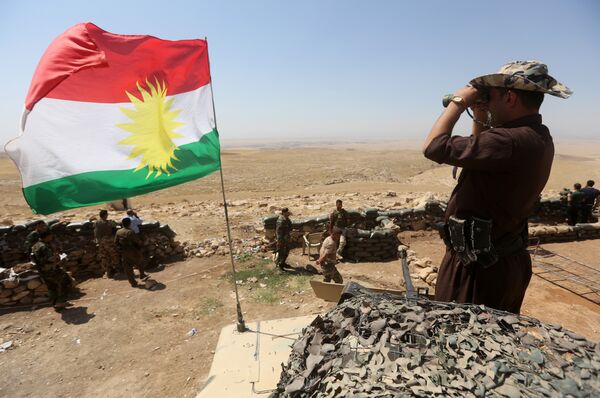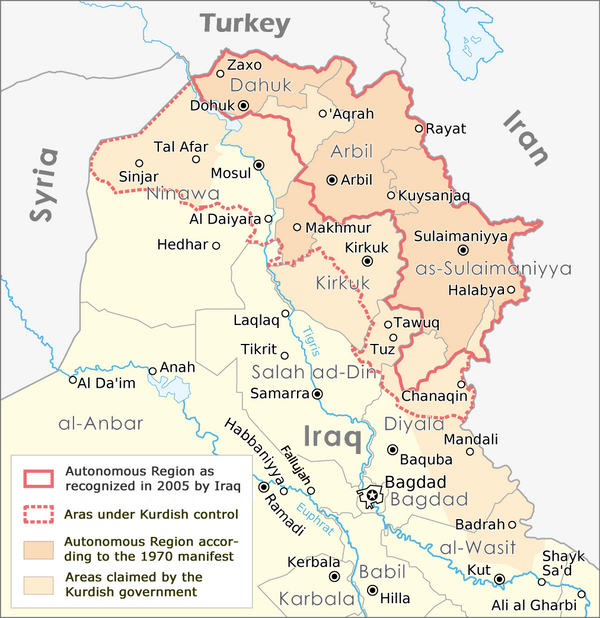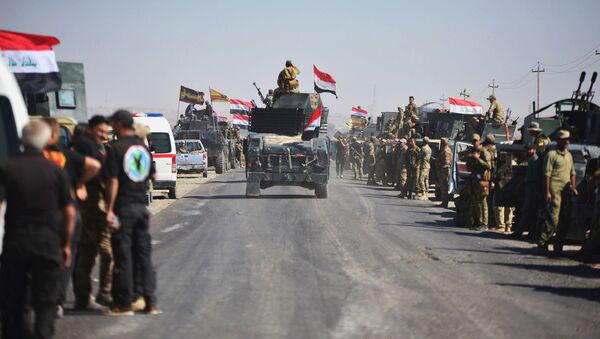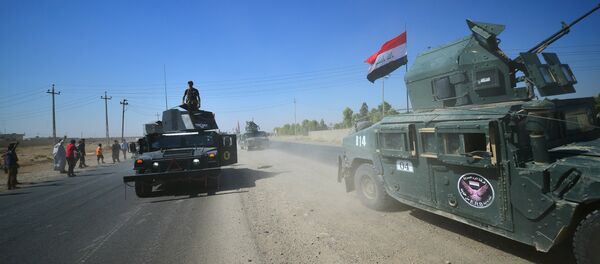Speaking to Radio Sputnik, freelance journalist and Kurdish affairs specialist Wladimir van Wilgenburg said that by taking Kirkuk, Baghdad has effectively "broken the back of the Kurds," making it "very difficult to implement the results of [the September 25] referendum."
"It doesn't mean there is no support for Kurdish independence, but at least for now this referendum talk is going to be over for the Kurds," the observer added. Iraqi Kurds went to the polls last month, with 92.7% of voters marking their support for independence amid turnout of 72.8%. Baghdad criticized and rejected the plebiscite's results.
Asked what options Iraqi Kurdish authorities have now, van Wilgenburg stressed that militarily at least, their options are very limited: "The problem is that the Kurdish Peshmerga forces have withdrawn from most of the areas in the disputed territories; they don't have much say over these territories anymore, so it's very difficult for the Iraqi Kurds to counter this."

"The only hope," according to the analyst, "is that the West and the US can pressure Baghdad not to take even more steps, and to perhaps broker negotiations between Baghdad and Erbil to come to some sort of concessions or agreement."
Might Makes Right?
Ultimately, van Wilgenburg emphasized that perhaps the main thing to remember in the Baghdad-Iraqi Kurdistan diplomatic conflict is politics is about might, not right. "They had a democratic vote – the majority is for independence, but we all know that in this, the international community is not about human rights or international law, but about real power, hard power, so whoever is strongest wins. That is what we're seeing now."

On Tuesday, Iraqi Prime Minister Haider Abadi announced that the issue of the independence referendum in Iraqi Kurdistan "belongs in the past," and urged Iraqi Kurdish leaders to conduct dialogue with Baghdad on the basis of the Iraqi constitution. In recent days, Iraqi police and military forces in Kirkuk province secured military bases, government facilities, oil fields and transport infrastructure in areas formerly controlled by the Kurds, with over 60,000 civilians leaving the city of Kirkuk and heading north to the Kurdish-governed Erbil and Sulaimaniyya provinces. On Wednesday, Kurdish Peshmerga forces continued their peaceful withdrawal, leaving areas around Mosul, including the Mosul Dam, as Iraqi forces moved in.


